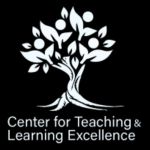Poems for Our Lives: In the Disciplines, is a blog that explores poems centered on the professional disciplines in which we, as academics, scholars and professionals, have made our lives.
Building a discipline-specific discussion around a poem should be manageable for everyone. You can devote just 10-15 minutes of one class towards one poem. You’re not going to be teaching poetry, you are simply going to be discussing ideas. The best poems unearth the essential nature of their subjects. At the core of poetry is the idea of what it means to be human and that’s an idea everyone can relate to. You’ll be surprised at the variety of responses you’ll get from your students. Some students will find little gems of meaning and connections that you don’t even know are there. And students may be given an opportunity to write their own poems as well. Have fun! Think expansively! And remember, Poetry, like the moon, is for everyone.
Gianna Russo
Assistant Professor of English and Creative Writing
Poet-in-Residence, REBUS
Editor in Chief, Sandhill Review
Director, Sandhill Writers RetreatPage Break
Religion and Philosophy
Mary Oliver, who was born in 1935, was one of America’s most beloved and accessible poets. She called herself a “praise poet” who uncovered everyday gratitude in her writing. Her writing explores and yes, praises, the big concerns of humanity: What is our connection to nature? Who or what is God? What happens when we die? How can we live life to the fullest? In this poem, Oliver asks some of those questions. Oliver died from lymphoma January 17, 2019 at the age of 83.
Discussion starters:
- Oliver claims that “holiness is visible, entirely.” In what ways is Holiness visible in our world?
- What does Oliver mean when she says “to understand many things you must reach out of your own condition?
- How is this a religious poem?
- According to this poem, how do you think Oliver might define God?
- How does this poem explore what it means to be human?
Professor, create your own question here:
Writing prompt: Write a poem about God without every saying God’s name or telling us that it is about God. Feel free to share your poems with me at gianna.russo@saintleo.edu.
Leaves and the Blossoms Along the Way
by Mary Oliver
If you’re John Muir you want trees to
live among. If you’re Emily, a garden
will do.
Try to find the right place for yourself.
If you can’t find it, at least dream of it.
When one is alone and lonely, the body
gladly lingers in the wind or the rain,
or splashes into the cold river, or
pushes through the ice-crusted snow.
Anything that touches.
God, or the gods, are invisible, quite
understandable. But holiness is visible,
entirely.
Some words will never leave God’s mouth,
no matter how hard you listen.
In all the works of Beethoven, you will
not find a single lie.
All important ideas must include the trees,
the mountains, and the rivers.
To understand many things you must reach out
of your own condition.
For how many years did I wander slowly
through the forest. What wonder and
glory I would have missed had I ever been
in a hurry!
Beauty can both shout and whisper, and still
it explains nothing.
The point is, you’re you, and that’s for keeps.




